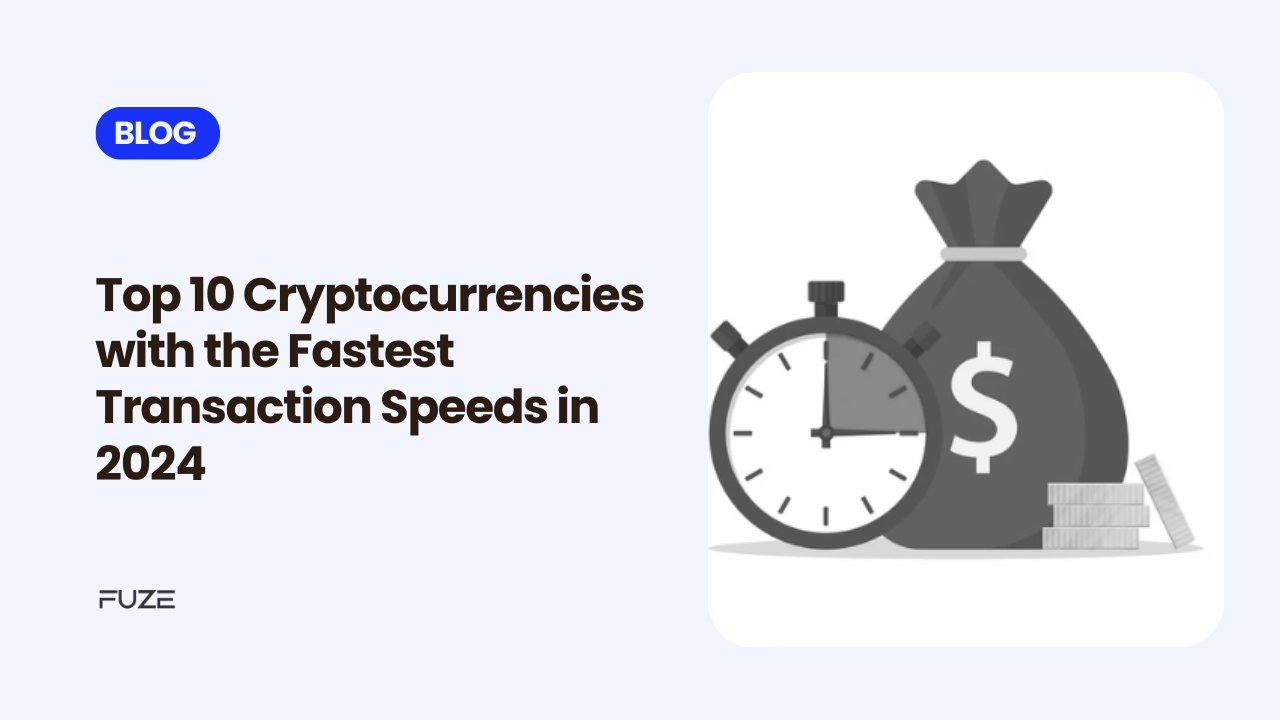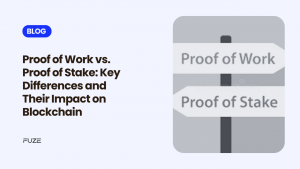In the rapidly evolving world of digital finance, transaction speed is becoming a crucial factor for both individual and business users. The faster a transaction can be verified and settled, the better suited a cryptocurrency is for real-time use cases like cross-border payments, decentralized finance (DeFi) applications, and micro-transactions. This list highlights the top 10 cryptocurrencies with the fastest transaction speeds, showcasing their advantages for anyone looking to optimize payment efficiency and streamline their digital asset transactions.
Why Transaction Speed Matters
Transaction speed is vital for several reasons. For one, it directly impacts user experience, particularly in environments like e-commerce, where instant confirmations improve convenience and trust. Additionally, faster transaction times contribute to reduced network congestion and lower fees, benefiting users and businesses alike. With innovations in blockchain technology, many cryptocurrencies are pushing the boundaries of transaction efficiency.
Top 10 Fastest Cryptocurrencies for Transactions in 2025
Let’s dive into the top cryptocurrencies that stand out for their speed, reliability, and potential to reshape the future of digital payments.
1. Solana (SOL)
- Average Transaction Speed: ~0.4 seconds
- Transaction Capacity: 65,000 TPS (transactions per second)
- Overview: Solana’s unique Proof of History (PoH) protocol enables rapid processing, making it one of the fastest networks today. With impressive scalability, Solana has positioned itself as a leader in DeFi, NFTs, and high-volume applications.
2. Algorand (ALGO)
- Average Transaction Speed: ~4.5 seconds
- Transaction Capacity: ~6,000 TPS
- Overview: Designed to support a range of decentralized applications, Algorand’s pure Proof of Stake (PoS) consensus mechanism ensures quick transaction processing and near-instant finality, making it ideal for payments and smart contracts.
3. Ripple (XRP)
- Average Transaction Speed: ~3-5 seconds
- Transaction Capacity: 1,500 TPS
- Overview: Known for its focus on cross-border payments, Ripple provides near-instant settlement. Its network has formed partnerships with financial institutions globally, cementing its position as a leading solution for efficient, high-speed transactions.
4. Fantom (FTM)
- Average Transaction Speed: ~1-2 seconds
- Transaction Capacity: 20,000 TPS
- Overview: Using a unique Lachesis consensus mechanism, Fantom achieves high throughput and quick finality, making it popular for DeFi applications and any scenario requiring high-frequency transactions.
5. Avalanche (AVAX)
- Average Transaction Speed: ~1-2 seconds
- Transaction Capacity: 4,500 TPS
- Overview: Avalanche’s highly efficient consensus protocol supports rapid transaction confirmations, and its scalability allows for interoperability with various blockchain ecosystems, positioning it well for both consumer and enterprise use cases.
6. Nano (NANO)
- Average Transaction Speed: ~0.2 seconds
- Transaction Capacity: Nearly instant due to block-lattice structure
- Overview: Nano’s unique block-lattice structure enables real-time transactions without fees, appealing for micro-transactions and peer-to-peer payments. Its efficiency makes it an excellent choice for those looking to avoid high transaction costs and wait times.
7. Stellar (XLM)
- Average Transaction Speed: ~3-5 seconds
- Transaction Capacity: 1,000 TPS
- Overview: Stellar’s mission is to facilitate low-cost cross-border payments, with a consensus protocol that ensures transactions are settled within seconds. Its strong financial partnerships make it a trusted option for fast and low-cost transactions.
8. Cardano (ADA)
- Average Transaction Speed: ~20 seconds
- Transaction Capacity: 250 TPS (with scalability improvements on the way)
- Overview: While Cardano’s transaction speed is moderate, its commitment to scalability and ongoing upgrades make it a viable option for businesses seeking stable and secure transaction processing with a focus on future scalability.
9. Polygon (MATIC)
- Average Transaction Speed: ~2 seconds
- Transaction Capacity: 7,000 TPS
- Overview: Built as a layer-2 solution for Ethereum, Polygon offers quick transaction times and high throughput, making it an effective choice for DeFi applications and any platform needing affordable, fast transactions on a large scale.
10. Elrond (EGLD)
- Average Transaction Speed: ~6 seconds
- Transaction Capacity: 15,000 TPS (scalable to 100,000 TPS)
- Overview: Elrond’s Adaptive State Sharding technology enables impressive scalability, with the potential to handle hundreds of thousands of transactions per second. This high scalability, combined with fast confirmation times, positions Elrond as a powerful option for future-proofing transaction needs.
How to Choose the Right Cryptocurrency for Fast Transactions
Each cryptocurrency brings unique strengths to the table, so selecting the right one depends on your specific requirements:
- Cross-Border Payments: Ripple (XRP) and Stellar (XLM) are particularly strong options due to their global reach and partnerships with financial institutions.
- DeFi Applications: If you’re in the DeFi space, Solana (SOL), Fantom (FTM), and Avalanche (AVAX) offer both speed and scalability.
- Peer-to-Peer and Microtransactions: Nano (NANO) stands out as an optimal choice for P2P payments with its zero-fee structure and instant processing times.
- High Throughput: For applications requiring high TPS, Elrond (EGLD) and Polygon (MATIC) offer scalability with high transaction speeds.
The Future of Fast Cryptocurrency Transactions
The demand for faster transaction speeds will only grow as crypto adoption accelerates. Projects are continuously innovating to address issues like scalability, cost, and interoperability. As blockchain technology matures, the list of fast, efficient cryptocurrencies will expand, providing users with more choices to suit their diverse needs.
Fuze’s Role in Streamlining Fast Transactions
At Fuze, we’re committed to bringing the most efficient payment solutions to our clients. By supporting top-performing networks and offering secure transaction pathways, Fuze enables businesses to benefit from quick, reliable, and cost-effective transactions. Our Digital Assets as a Service platform empowers financial institutions to adopt fast-payment solutions, creating a seamless experience in today’s fast-paced digital economy.
Disclaimer: Virtual assets carry significant risks, including high volatility and potential loss of your entire investment. They are not backed by governmental protections, and recourse may be limited in case of loss. Always assess your risk tolerance, fully understand the risks, and seek independent financial advice if needed before investing.
Frequently Asked Questions
1. What is considered a “fast” transaction in cryptocurrency?
Transactions that confirm within seconds to a few minutes are typically considered fast. The top cryptocurrencies listed here confirm transactions nearly instantly or within a few seconds.
2. Are there any risks with faster transaction speeds?
While speed is a benefit, some networks may sacrifice decentralization or security for faster speeds. It’s essential to research each network’s trade-offs.
3. Can I use these fast cryptocurrencies for everyday purchases?
Yes, many of these fast cryptos, such as Solana and Nano, are increasingly being used for retail and online purchases, especially in regions where crypto payments are widely accepted.
4. How does Fuze support fast transactions?
Fuze’s platform integrates with high-speed networks, enabling businesses to leverage cryptocurrencies like Solana and Ripple for efficient cross-border payments and transactions.
5. Is there a difference between transaction speed and finality?
Yes, speed is the time it takes for a transaction to process, while finality is when a transaction becomes irreversible. A quick transaction with immediate finality is ideal for secure transactions.







